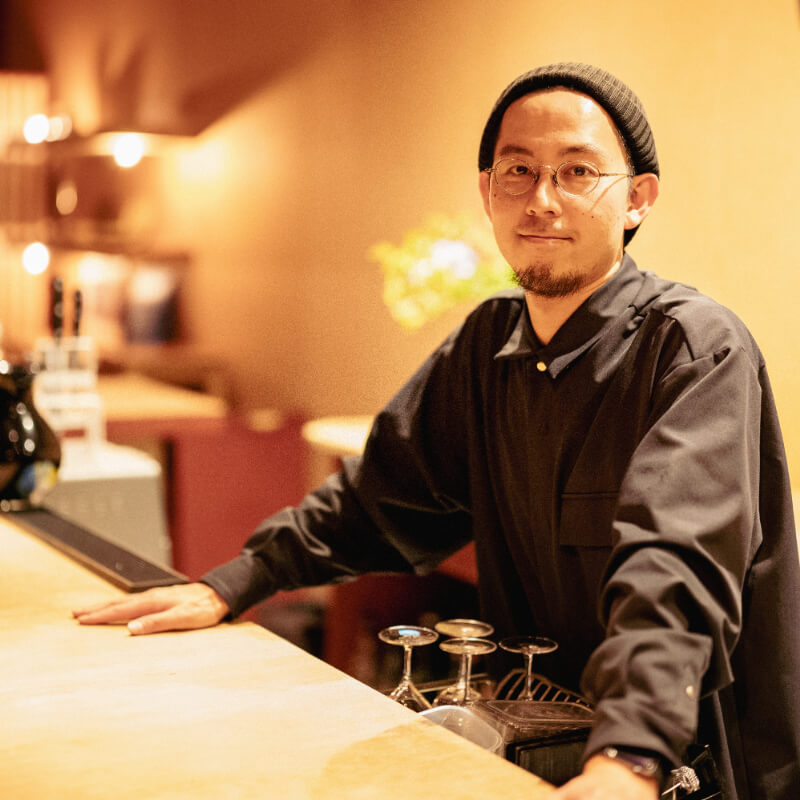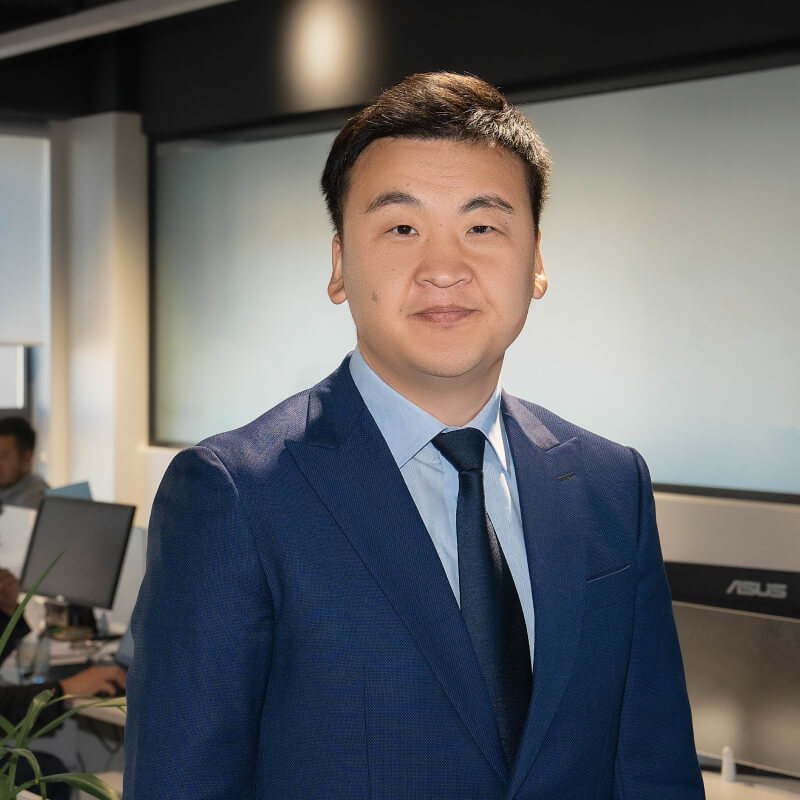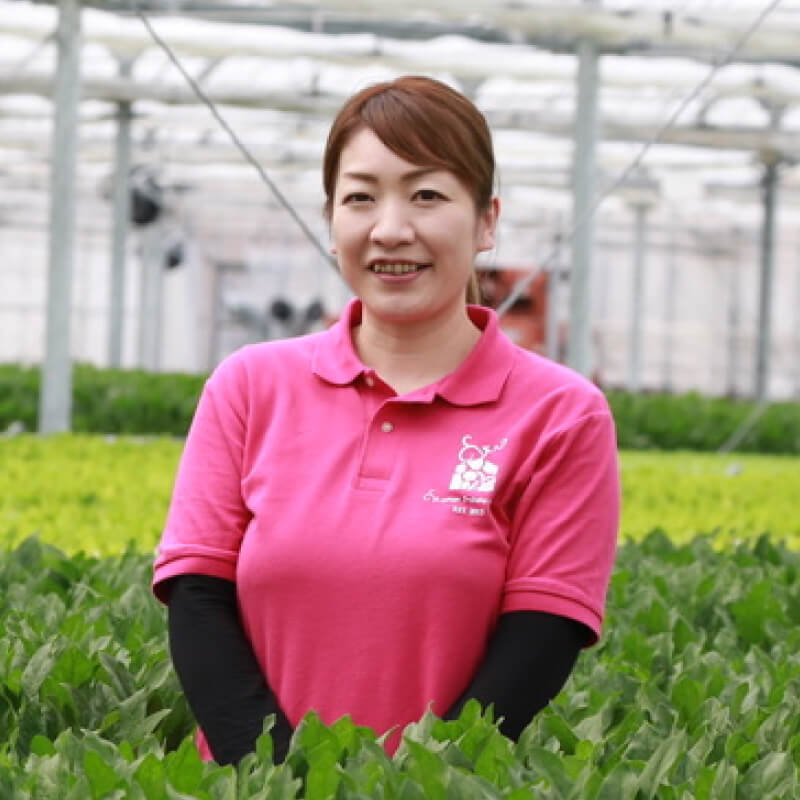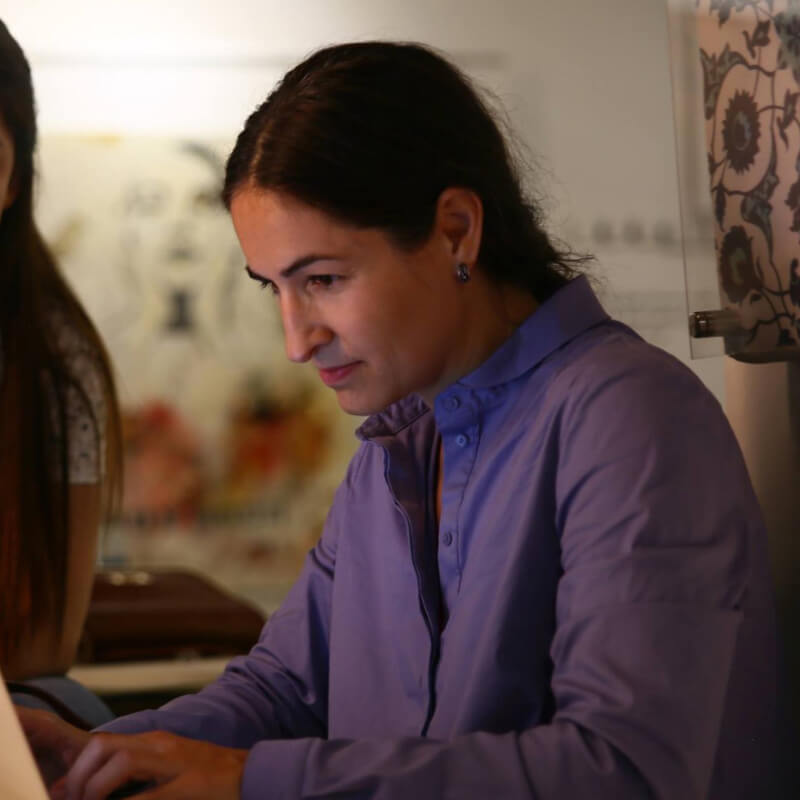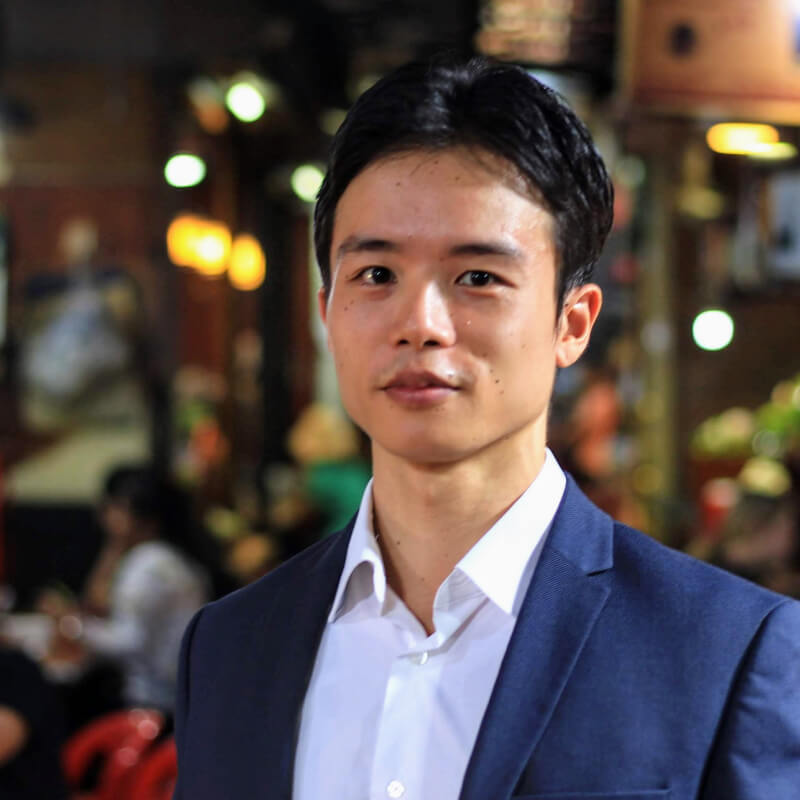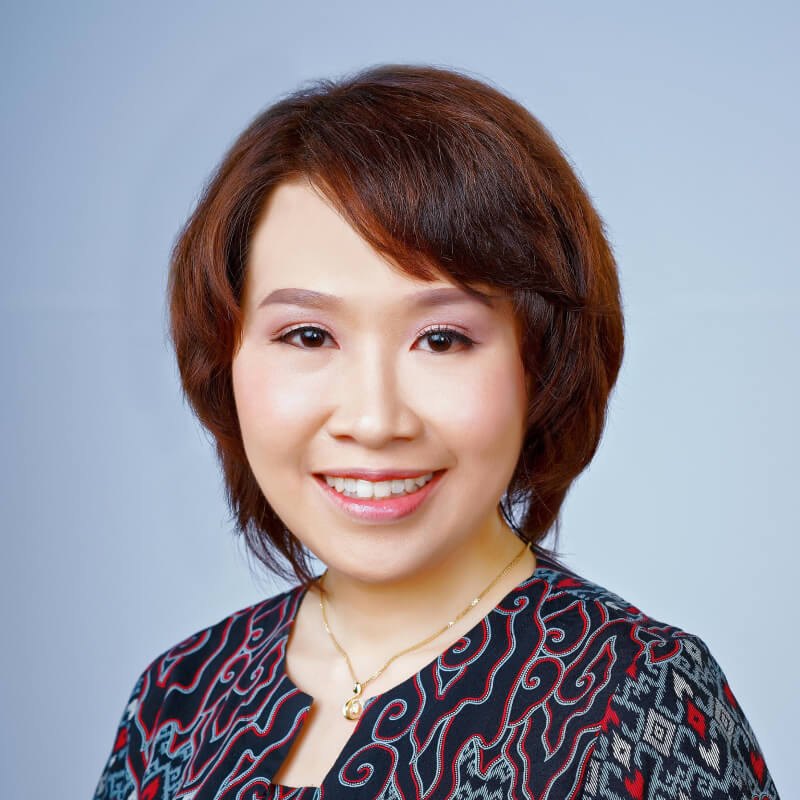
Passing the Torch:
Lighting the Path Through Education
Wenda Gumulya
Director at Deloitte Touche Tohmatsu Limited
*Since 2009, the name has been updated to the College of International Management.
Introduction
Ms. Gumulya, originally from Indonesia, started her career journey in the consulting and professional services field in Tokyo after graduating from APU. She is currently a Director at Deloitte, an international consulting and accounting firm. Ms. Gumulya is now based in Sydney, Australia.
Alongside her professional career, Ms. Gumulya is also the co-founder and chairperson of Hoshizora Foundation, a non-profit organization providing scholarships and education programs in Indonesia. Hoshizora was born as a small initiative at APU, and it has now been providing scholarships to more than 3,000 children and delivering support programs for hundreds of teachers and schools in remote areas in Indonesia.
We interviewed Ms. Gumulya to hear her journey from APU to taking on leadership roles in business and philanthropy.
Two roles: Assisting businesses with ESG matters and supporting Japanese companies operating in Australia
My current role at Deloitte is twofold: The first is as a Director at the ESG practice within the Audit and Assurance Division, helping companies in Australia and globally with their ESG reporting, strategy, and risk management, offering comprehensive services to enhance their sustainability practices and align with global standards.
The second is as the Lead National Director of Deloitte's Japanese Services Group. The Group specializes in delivering professional services to Japanese multinational companies, supporting their operations and investments in Australia. These include M&A transactions, operations optimization, strategy and risk management, compliance, taxation, and financial reporting services.
I asked Ms. Gumulya how her experience studying at APU connects with her dynamic and international career.
Becoming an APU scholarship student
Ms. Gumulya first learned about APU when her parents found an advertisement in an Indonesian newspaper.
My parents told me about APU and at first I thought it would be hard to study in Japanese. However, my perspective shifted when I attended a joint university exhibition featuring APU. The representative explained that I could take courses in both English and Japanese. Plus, the diversity of APU's student body really caught my attention – students from all corners of the globe! I applied, was awarded a very good scholarship, and made the decision to join APU.
I really got to know a lot of international students during my dormitory life after entering APU. There were more than 20 girls sharing the same floor with me. Next to me was a German-Samoan girl, and across from me resided a Thai student. My Indian friend shared her expertise in vegetarian cooking with me, while a girl from Uganda taught me the cooking techniques from her country. That's a memory I cherish to this day. From the start, APU introduced me to a world of cross-border friendships and culinary adventures.
I also made friends with girls from Japan, Sri Lanka, Malaysia, China, Korea, Bulgaria, Australia, Hong Kong, Vietnam, Canada, Ukraine, Russia, and many more, with whom I am still in contact to this day. Our shared kitchen evolved into the focal point of social interaction, where we gathered for dinners and cultural exchanges through cooking and dining together. Moreover, we exchanged tips on part-time job opportunities, further enriching our collective experience.
The experience of immersing myself in a culturally diverse environment during my time at APU continues to be invaluable to me today. Having grown accustomed to interacting with individuals from various cultures and perspectives, it greatly enhances my ability to observe and understand others.
Sending 1,000 Yen scholarships to children in Indonesia
Deeply grateful for her scholarship and driven by a desire to give back, Ms. Gumulya and her APU friends hatched an idea to do monthly pooling of their one-time lunch money of 1,000 yen to send one Indonesian child to school.
Then, and still now, for a child living in Indonesia, especially in remote areas far from the cities, 1,000 yen is a lot. This amount could cover many education costs for these children. But, establishing the scholarship program wasn't easy. We needed to ensure donated funds were solely used for education, as some parents diverted them for household expenses.
To address this, they collaborated with local teachers to monitor the program. Now, hundreds of teachers volunteer to oversee it and also work with Hoshizora to arrange educational activities for the children. With the dedication of these teachers, along with numerous volunteers and approximately 40 staff members, Hoshizora has successfully supported over 3,000 children to attend school and organized hundreds of education initiatives in both local and remote areas of Indonesia.
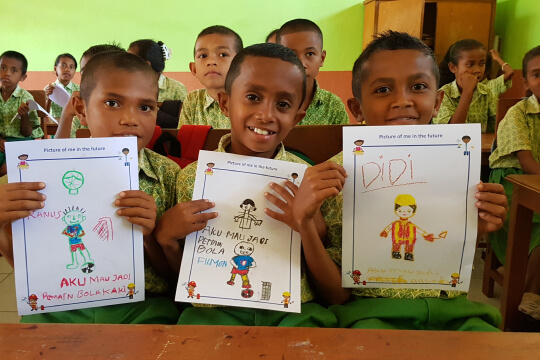
Hoshizora’s Education Resilience Framework
The average level of education in Indonesia has improved in recent years thanks to the efforts of many people, but the problem is the disparity between children who have access to quality education in cities and those who don’t in the rural areas.
Recognizing that the success of children's education is heavily reliant on their ecosystem, Ms. Gumulya and her friends at Hoshizora Foundation developed the "Education Resilience Framework." This framework consists of five pillars: Access to Education, Teaching Methods and Materials, Teacher's Adaptability, Student's Adaptability, and Parental Support. By addressing these five pillars, the framework aims to create a holistic and supportive environment for all children to thrive.
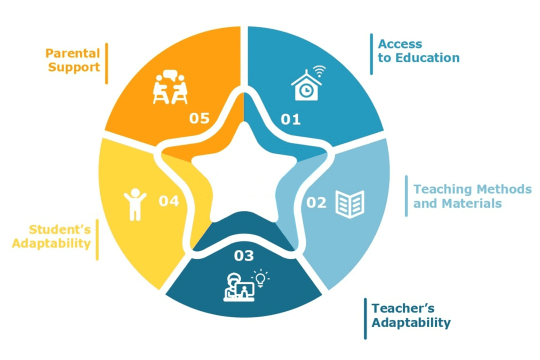
The first pillar is 'Access to Education'. This pillar focuses on providing financial support, primarily through scholarships, that children and their guardians manage for educational needs. This could include school fees, textbooks, stationery, or even transportation costs like fuel for boats to commute to school in remote island communities.
The second pillar, 'Teaching Methods and Materials', focuses on fostering adaptable and engaging learning approaches. Hoshizora supports teachers in developing these skills through workshops and discussions, empowering them to customize learning experiences for local needs and optimize student outcomes.
In relation to the third pillar, 'Teacher's Adaptability', Hoshizora has a teacher capacity-building team where dedicated psychologists and educators develop and deliver programs to enhance teachers' competence. A recent example of this initiative was a program supporting teachers in remote areas to enhance their teaching skills and digital literacy during the COVID-19 pandemic.
The fourth pillar, 'Student Adaptability', recognizes the growing importance of soft skills alongside academic knowledge. Hoshizora's framework also emphasizes critical thinking, problem-solving, communication, and collaboration. In a rapidly changing world, these skills equip students to adapt and thrive.
Empowering families is the core of Hoshizora's fifth and final 'Parental Support' pillar. They conduct programs for children's parents, covering topics such as child development, financial planning, and nutrition. These workshops provide valuable knowledge, like the long-term benefits of education. For instance, one participant shared how they don't allow their daughter to marry before 18 years old after understanding its impact on her future career and the family's well-being. This highlights how parental engagement programs can contribute to lower child marriage rates and empower villages economically in the long run.
By addressing these interconnected pillars, the Education Resilience Framework has been creating a ripple effect. It strengthens not just individual student achievement, but also the overall well-being of families and communities.
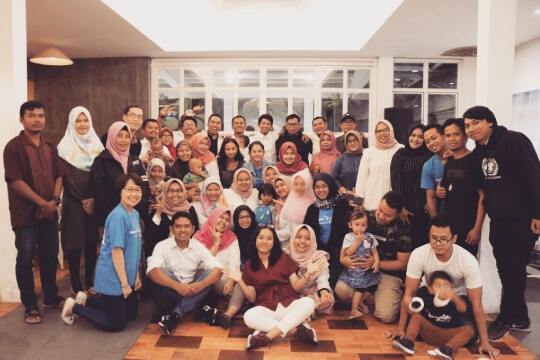
Importance of Identity
Throughout her journey, Ms. Gumulya has been adeptly balancing her role as an international businessperson and leading social projects. Not only has she successfully co-founded Hoshizora with her APU friends, but she has also served as a Board Member and Advisor for many nonprofit initiatives worldwide.
Developing the skills the global world demands and integrating them with your unique identity and leadership style is like an art. It's a learning process that we should all embrace as we grow. Remaining true to one's cultural heritage while navigating global markets fosters trust and authenticity in business interactions. I learned a lot about the importance of identity at APU. Being in diverse cultures showed me it's okay to be different and having your own identity is a good thing.
In the world of international business, mastering the art of balancing empathy and authenticity is crucial. This combination builds trust with partners globally, as they feel a genuine connection with you. I observe the same principle at Hoshizora. When these children discover their talents, embrace their true selves, and incorporate empathy into their daily lives, they can flourish on their own terms. My hope is that Hoshizora inspires others to embrace these values, fostering a world where everyone can thrive together in diversity and empathy.
It’s a lesson from APU that has stayed with me to this day: be authentic, be empathetic, and embrace the continuous learning process.

